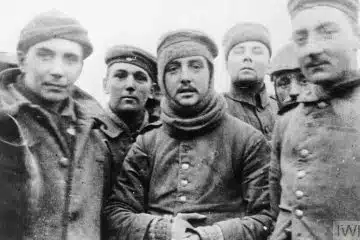Culture of vocations begins with each of us
We enjoy watching Kitchen Nightmares, a reality program that shows TV Chef Gordon Ramsey swooping out of the sky — or an expensive SUV — to save the place from tanking.
The show consists of a segment where Ramsey samples the cuisine, which is always awful, and a segment where the owner, after a verbal pummeling by Ramsey, rediscovers, tearfully, his or her passion for feeding unappreciative customers.
The premise being retailed requires that the viewer accept Ramsey’s genius and crude manner (masking his great love for all of God’s children) can save a business from years of incompetence and feckless management in just a few short days.
My favorite segment involves Ramsey gathering information and suggestions from the staff of the world-weary, lethargic or incompetent restaurateur. Even the lowliest busboy professes a love for the business and desire to see the boss back on his feet again — and not just because it’s the only job this staffer can find.
It’s predictably formulaic, but it serves a purpose. The passion shown by the rank-and-file workers for the business revives the owner and inspires him or her to cast aside character flaws, ignorance and a general lack of common sense to become a super hero and sin no more.
I find the passion and care employees show for the place they work hard to explain. When I was a newspaper publisher, hearing a carrier advocating better service for his or her “customers” seemed encouraging but inexplicable. How could they feel so much concern when they were getting 11-cents per delivery to a home before 6 a.m. in often rotten weather — to someone who would complain if the newspaper landed on the wrong side of the front steps?
But there’s a lesson for us from the dedicated bus boy and the reader-advocate newspaper carrier for all of us.
One of the priorities Archbishop Dennis M. Schnurr has set for the archdiocese is that we all “foster a culture of vocations.” Obviously, part of that message is that we promote an atmosphere that energizes interest in consecrated life as a priest, deacon, sister, or brother in service to the church.
But part of fostering and cultivating anything parallels the work a farmer does before he plants his crop. By focusing passionately on service to others and always making an effort to undertake all tasks with a care for quality, we cultivate an atmosphere that is fertile for others — to work, to pray and to serve. It’s what High School Football Coach Bob Ladoucer of the film, “When the Game Stands Tall,” asked of his players — strive for a perfect effort. Not perfection, mind you, but for a perfect effort.
Compare the person you see who is doing a job to the person who is passionate about his work and is dedicated to the service of others in that work. That, my friends, is a culture of vocations.
When what you do takes on that extra dimension of caring, service and of making a “perfect effort,” like the people on “Kitchen Nightmares” and the carriers at my old newspaper. Or like the employees of The Catholic Telegraph who each demonstrate a level of caring and concern that makes their jobs here a true vocation.
I’d like to ask you to be more observant in the coming year. Watch for that person who treats his occupation and station in life as a vocation. You’ll know them when you see them in action.
Then see if that doesn’t make you feel more motivated to make that perfect effort in your own life. Then apply that effort and that passion to serving God and others.
You’ll find it works like any exercise. Repetition and practice will cause you to foster a culture of vocations, en effort that should help those with that special calling discern their purpose in service to God.
———
You will see a story in this month’s edition about the archdiocesan pilgrimage to the Holy Land, which I was privileged to accompany. There is simply not enough space in this edition for the entire story, the most important it seemed to me, was the relationship the archdiocese has with the Project Hope schools in Palestine.
Many of our readers are uncomfortable using the Internet, so we’ll spill some of the pilgrimage coverage into the February edition. Meanwhile, more photos will be posted on our website in the coming days and we hope you enjoy them.
Best wishes for a great new year to you all.
Steve Trosley is the editor and general manager of The Catholic Telegraph.
This Editor’s Note originally appeared in the January 2015 print edition of The Catholic Telegraph.














